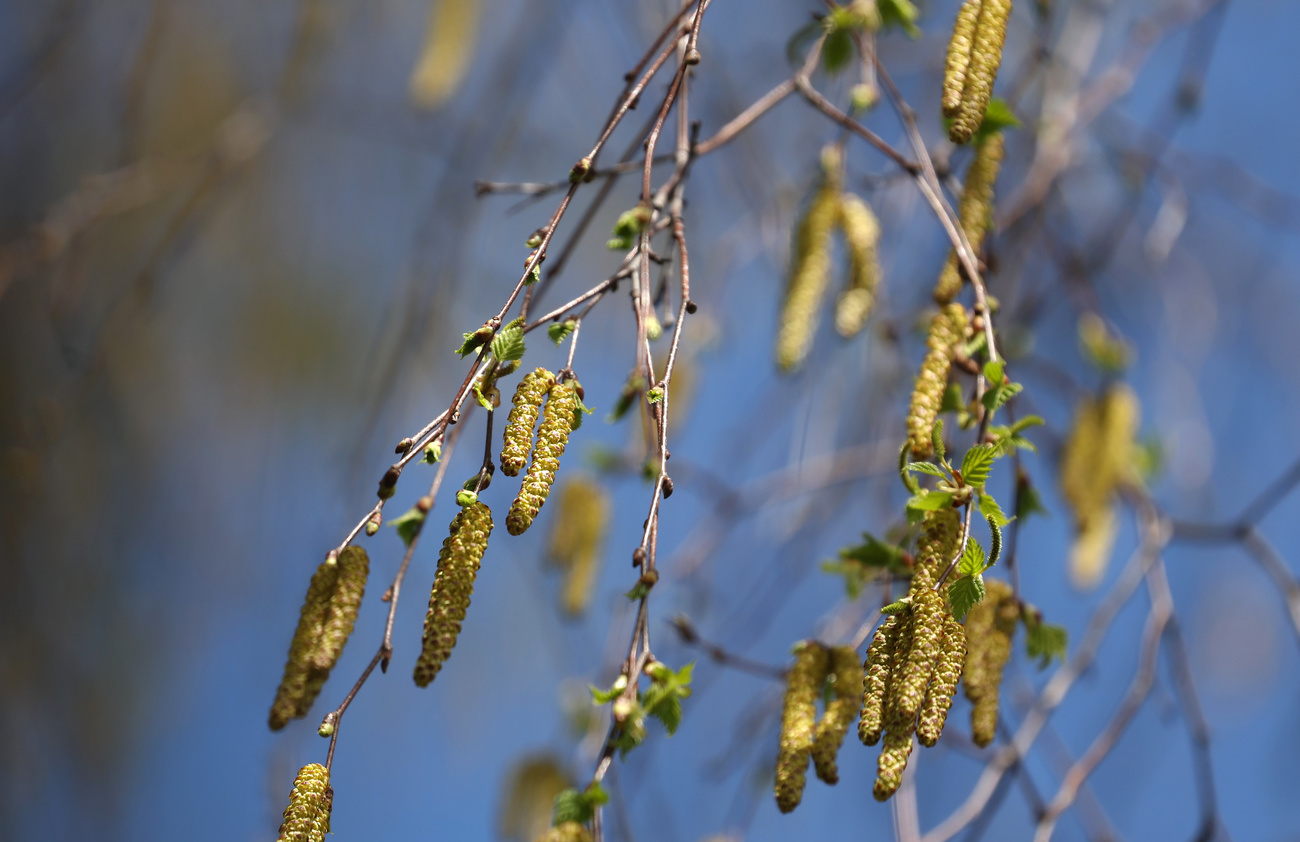
City dwellers more likely to suffer from hay fever, study shows

Zurich researchers say they were able to detect a sharp increase in antihistamine levels in wastewater just a few hours after an episode of pollen. They also explain why urban dwellers are more likely to suffer from hay fever than those in the countryside.
Antihistamine enters wastewater via urine, said Peter Schmid-Grendelmeier from the University of Zurich in an interview with the Neue Zürcher Zeitung on Saturday. The results of his study, conducted along with the Swiss Federal Institute of Aquatic Science and Technology (Eawag), have not yet been published.
Researchers also noticed the increase in antihistamines at an unusual time: “alder and hazel trees were not yet pollinating, while birch pollen was not yet measurable”, Schmid-Grendelmeier said.
According to the dermatology professor, it hasn’t yet been possible to explain what triggered an allergy in many people at that time. “There may be a tree species that we haven’t yet had on the radar,” he said.
+ Read more: Swiss technology to fine-tune pollen forecasts
‘Aggressive pollen’
The study also shows a gap between urban and rural areas when it comes to hay fever, with city dwellers more exposed – partly due to “more aggressive” pollens.
“For example, birch trees that grow in towns contain around twice as many allergens as birch trees in the countryside,” Schmid-Grendelmeier said. The protein responsible for sparking the allergy is a “stress” protein, and tees exposed to too much exhaust fumes, for example, produce more of it, he said.
Exhaust fumes and traffic-related pollutants can also irritate the mucous membranes in humans, which further explains why city-dwellers are more at risk.
Desensitisation
During an allergic reaction, the body releases a chemical mediator – histamine – which then causes symptoms such as a runny nose or red eyes. Antihistamines block the histamine receptors in the body, said Schmid-Grendelmeier.
In severe cases, pollen can also cause breathing difficulties. In such instances patients are advised to see a doctor for desensitisation treatment, which aims to “switch the immune system from hypersensitivity to tolerance,” the expert added.
The next opportunity to start such a treatment will be in autumn – before the next pollen season.
Adapted from French by DeepL/dos
This news story has been written and carefully fact-checked by an external editorial team. At SWI swissinfo.ch we select the most relevant news for an international audience and use automatic translation tools such as DeepL to translate it into English. Providing you with automatically translated news gives us the time to write more in-depth articles.
If you want to know more about how we work, have a look here, and if you have feedback on this news story please write to english@swissinfo.ch.

In compliance with the JTI standards
More: SWI swissinfo.ch certified by the Journalism Trust Initiative




























You can find an overview of ongoing debates with our journalists here . Please join us!
If you want to start a conversation about a topic raised in this article or want to report factual errors, email us at english@swissinfo.ch.